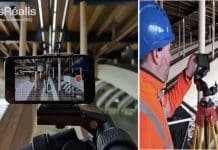When it comes to industries contributing to the impact of climate change, construction is one of the biggest culprits. In this article, Tom Noctor, Procore explores how closing the data gap can help to drive sustainability in the sector
That’s because it’s capable of using large amounts of material and energy – not to mention the waste it contributes by failing to prevent defects.
The cost for construction firms is two-fold: first, environmentally, and second, financially, as defective construction costs the UK industry an estimated £20bn every year. With a figure as colossal as this, you would imagine UK construction has a well-oiled data culture in place to define the issue, shape the solution, and resolve the problem.
Yet, our research tells us that 95% of construction data goes unused, and 50% of construction executives say a lack of integration stands in the way of them using data effectively. Meanwhile, Arup reports that less than 1% of building projects quantify the scale and source of their carbon emissions. This points towards a significant data gap in UK construction and highlights the urgency with which the industry needs to close it.
To identify how this can be achieved, an industry roundtable, organised with and hosted by the University of Cambridge’s Lead Researcher in Industrial Energy and Material Sustainability, Dr Saul Jones, discusses how construction can become more sustainable and what role data has to play.
The value of data in the construction industry
To grow more sustainably as an industry, quality data is needed. Data is starting to enable the construction industry to drive more informed decisions on projects.
However, the eye-watering toll of defects in UK construction tells us that something isn’t working when it comes to using data to drive sustainability. One explanation could be that construction firms don’t realise the potential of data to help the environment and, as a result, their business.
Digitising data is a step in the right direction, but without a platform to act as one unified location, information silos will stop data from ever being shared and communicated effectively.
What’s needed is a two-pronged approach where construction firms first recognise the value of data and then employ the tools to make the most of it. Only with this attitudinal change can attention be turned to the data itself.
The difference between data and information
What’s the difference between data and information? Dr Jones’s question might sound like a simplistic one, but the two are easily confused.
Dr Jones explained that information is used to inform and while firms may collect huge amounts of data unless it is used to inform something, it’ll sit on the shelf.
Construction data is exploding and it’s difficult to digest it all. Dr Jones said how the industry is almost suffering from “paralysis by analysis.” Changing attitudes and methods of collecting data will help.
But, he continued, “We need to find a way to have conversations about what we are trying to achieve… to ask what are the questions I’m trying to answer.” This could be: What’s causing my projects’ tonnage of waste to be so high?; what are the main culprits leading to defects?; and, why are my carbon emissions so high?
Only once these questions are answered can organisations begin to collect quality data to inform sustainability efforts and set benchmarks.
Changing the status quo
One of the problems facing construction is not having an established culture of benchmarking. Without benchmark efforts, it’s hard to gain a firm idea of what progress looks like or a clear understanding of the status quo.
Construction indeed moves at breakneck speed, but time needs to be optimised so we’re not spurning the lessons past projects can teach us. Setting up a digitised system which can automate workflows and deliver insights without time-consuming manual entry is vital. It means teams no longer look either forward or backward; they’re doing both.
Without making the most of past project data, the low-hanging fruit will be left on the floor, as Dr Jones noted. Plus, leaders will fail to learn about the position of their business, and the direction they are headed.
This July saw the hottest day on record in the UK – a sobering reminder that we can’t afford to wait to find solutions to the climate crisis. Utilising data, the right tools, asking good questions, and forming benchmarks can make construction more sustainable. This won’t just impact businesses’ pockets, but their competitive advantage and compliance – and the planet.
Tom Noctor

Team Lead
Strategic Product Consultants
Procore

















